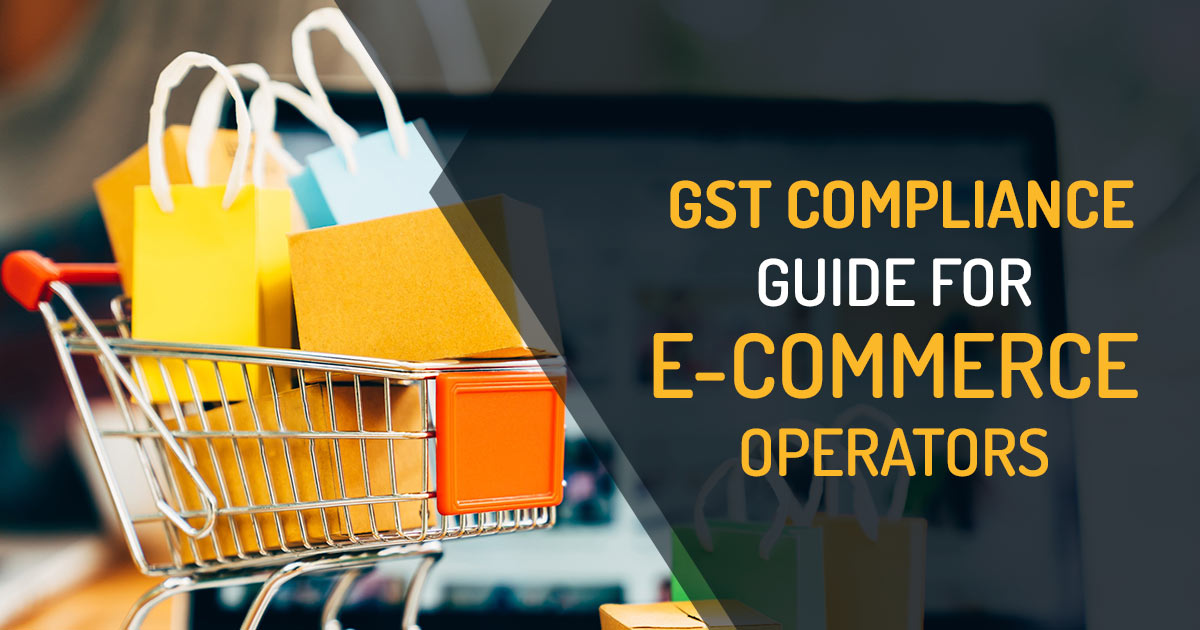
There is no doubt that the online business or selling from the e-marketplace does not only become the most famous channel of running the business however this channel of selling or running the business becomes unavoidable for any business if the same needs to survive and raise in the coming years. The same provides the platform to reach across the globe for every business.
As the same is a platform for seamless business via which people earn money that they do not have earned before. Hence there is some compliance that arrives and as GST is newer tax compliance with respect to others there are various wrong details and absence of the knowledge towards the compliance needs about the GST.
GST compliance that is subjected to apply towards the e-commerce business relies on the business models and the industry where the businesses function. We are attempting to talk about basic GST compliance for the e-commerce operators which currently captured the majority of online businesses.
Mandatory GST Registration for E-commerce Sellers
With respect to the view of GST enrollment needs, e-commerce sellers need to be classified as Supplier of goods & Supplier of services, since the enrollment needs differ relies on whether it is a business of providing goods and services.
Turnover Limit for Supplier of Goods
For the supplier of goods, GST enrollment is important. There would be no turnover limit privilege given towards this segment.
Turnover Limit for Supplier of Services
Towards the supplier of services, GST enrollment is important only if they pose a turnover exceeding the GST turnover privilege of Rs 20 lakhs.
But the supplier of services particularly specified that in section 9(5) of the GST act does not need important GST enrollment. For instance, these service providers pose:
- Those who furnish service of passenger transportation via an e-commerce operator such as OLA, UBER, and others.
- Hotel service providers via aggregator platforms such as Goibibo.
- Housekeeping service providers via aggregator platforms like the Urban company
Compulsory GST Return Filing Forms
GST enrolled e-commerce sellers needs to furnish the mentioned regular returns:
GSTR 1 and GSTR-3B Form
GSTR 1 and 3B are regular or periodic returns. These are needed to get furnished on the basis of monthly or quarterly rely on the business turnover.
Businesses with a turnover of Rs 5 cr would choose for QRMP scheme that would need them to furnish these returns in a quarterly manner.
GSTR-1 return from needs the information of the outward supplies served in a particular duration. As the e-commerce business sells to consumers all across the country, they are needed to report the GST taxable amount and taxes state and rate wise.
While GSTR 3B is a summary return that needs the business the report their liabilities and input tax credit claim and reversal. However, B2C interstate sales were needed to be provided state-wise in GSTR 3B form also.
TDS and TCS Credit Claim Return
As the e-commerce marketplace or e-commerce operators are needed to obtain the TCS from sellers which are to be furnished through them in GSTR-8 form via E-commerce operators, also e-commerce sellers are needed to avail the same credit by furnishing the claim return.
GSTR-9 Annual Return and 9C Reconciliation Form
The businesses whose turnover is more than Rs 2 cr need to furnish the GST annual return GSTR 9 form.
The businesses whose turnover is more than Rs 5 cr needs to furnish the GST yearly return GSTR 9C form is an annual reconciliation statement.
GST Credit Notes and Sales Returns
Returns hold a regular specification inside e-commerce, consumers buy and return the product commonly in the retail shops. Sales face an impact from this, GST liability, GST ITC credit (due to reversal of fees by e-commerce marketplace). Hence an e-commerce business needs to look after these returns and ensure that the correct GST liability is provided only qualified input tax credits are to be claimed and accurate ITC reversals are performed.
TDS By the e-Commerce Operators
The income tax act needs the e-commerce operators to deduct the TDS upon the payments furnished to the e-commerce sellers beneath Sec 194O of the income tax act at 1% when the gross sale exceeds Rs 5 lakh. Since e-commerce operators deduct TDS and furnish that in their TDS returns these can be availed by e-commerce sellers in settling their income tax liability during the time of furnishing the income tax return.
TDS Deduction
The most neglected segment by e-commerce business is this. A payment is furnished by e-commerce businesses to e-commerce operators and additional parties and for different expenses but rarely do they comply with TDS deduction for the payments build that is needed by the income tax act. The major cause of negligence is due to the e-commerce marketplace settling the payment to the e-commerce sellers net of their fees levied to the sellers.
Sellers on the same marketplace should look after the TDS deduction on the payment build to the e-commerce operators.









